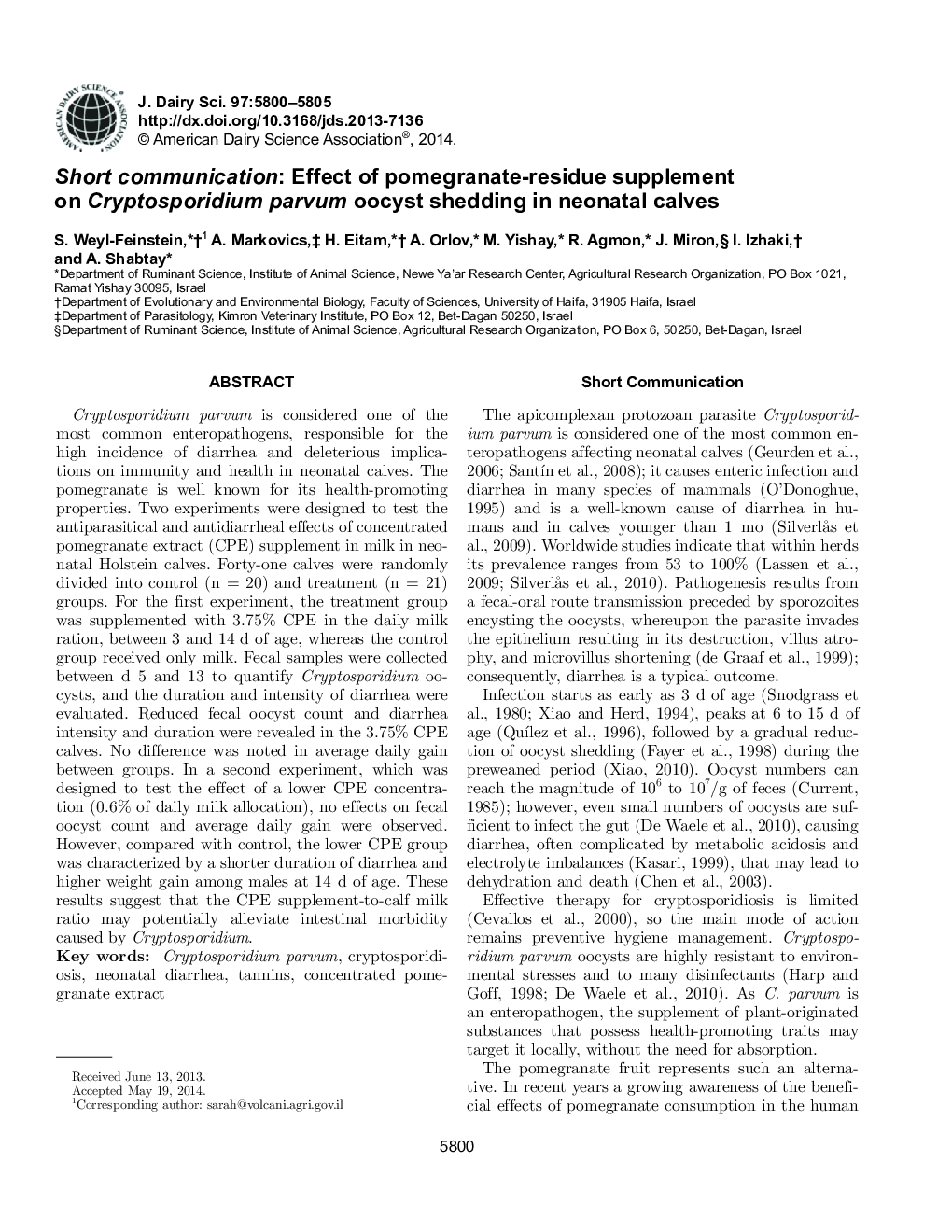| Article ID | Journal | Published Year | Pages | File Type |
|---|---|---|---|---|
| 10974153 | Journal of Dairy Science | 2014 | 6 Pages |
Abstract
Cryptosporidium parvum is considered one of the most common enteropathogens, responsible for the high incidence of diarrhea and deleterious implications on immunity and health in neonatal calves. The pomegranate is well known for its health-promoting properties. Two experiments were designed to test the antiparasitical and antidiarrheal effects of concentrated pomegranate extract (CPE) supplement in milk in neonatal Holstein calves. Forty-one calves were randomly divided into control (n = 20) and treatment (n = 21) groups. For the first experiment, the treatment group was supplemented with 3.75% CPE in the daily milk ration, between 3 and 14 d of age, whereas the control group received only milk. Fecal samples were collected between d 5 and 13 to quantify Cryptosporidium oocysts, and the duration and intensity of diarrhea were evaluated. Reduced fecal oocyst count and diarrhea intensity and duration were revealed in the 3.75% CPE calves. No difference was noted in average daily gain between groups. In a second experiment, which was designed to test the effect of a lower CPE concentration (0.6% of daily milk allocation), no effects on fecal oocyst count and average daily gain were observed. However, compared with control, the lower CPE group was characterized by a shorter duration of diarrhea and higher weight gain among males at 14 d of age. These results suggest that the CPE supplement-to-calf milk ratio may potentially alleviate intestinal morbidity caused by Cryptosporidium.
Related Topics
Life Sciences
Agricultural and Biological Sciences
Animal Science and Zoology
Authors
S. Weyl-Feinstein, A. Markovics, H. Eitam, A. Orlov, M. Yishay, R. Agmon, J. Miron, I. Izhaki, A. Shabtay,
